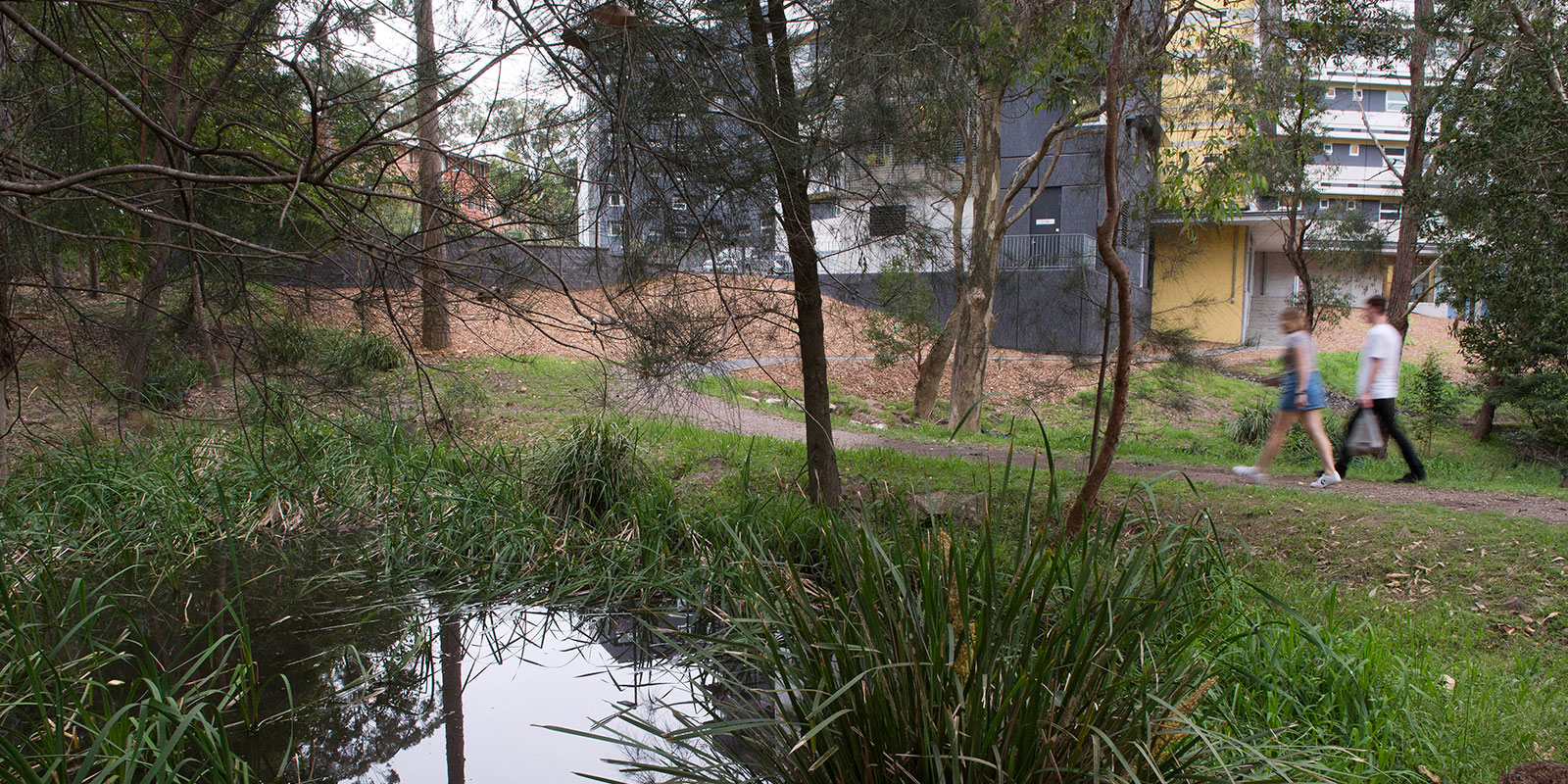
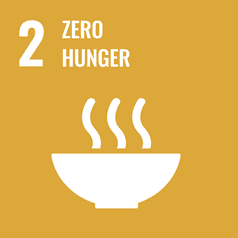
Goal 2:
Zero Hunger
Events for Local Farmers and Food Producers
Our University supports local farmers and food producers through a range of events and initiatives designed to foster collaboration and knowledge exchange.
In 2024, the University of Newcastle hosted our annual Food Product Development Expo at the Ourimbah campus, where students presented innovative food products to an audience that included local producers. We also engage globally, as seen in our collaboration with the Singapore National Biofilm Consortium, IPI Singapore, and Enterprise Singapore, where our Centre for Sustainable Development co-organised an event on microbiome innovations in agriculture and aquaculture. This international partnership highlights our commitment to advancing sustainable food systems through cutting-edge research and technology.
Our campuses feature industry-grade food science facilities that provide opportunities for local producers to trial and develop products in collaboration with academic staff and students. Through these and other initiatives, we create meaningful connections between the University and the broader food production community, supporting innovation and sustainability across the region.

Food Science and Human Nutrition Food Expo
Crafting nourishing products that prioritise health not only empowers individuals but also leaves a positive footprint on communities, the environment, and the economy. It signals an era of sustainable, comprehensive food production and consumption, ushering in a society that's healthier, happier, and economically vibrant.
Hosted annually, the Food Science and Human Nutrition Food Expo is a gathering for students, researchers, local farmers, and food producers to connect, showcase innovation, and share knowledge. The event highlights student-developed food products while fostering collaboration between the University and the broader food industry. It provides a valuable platform for local producers to engage with emerging talent, explore sustainable practices, and access the latest research in nutrition and food science.
Through initiatives like this, the University of Newcastle demonstrates strong commitment to supporting local food systems, encouraging sustainable innovation, and facilitating meaningful knowledge exchange between academia and industry.

The Quinoa Cluster, available in delightful flavours like chocolate and mocha, almond, and spicy chili, emerges as a wholesome snack.
The Date Delight, a gluten-free, fiber-rich slice with reduced sugar content, tantalizes taste buds.
Oatful, a sumptuous frozen dessert crafted from oat milk, beckons those seeking a dairy-free delight.

Puzzles, unique snacks hailing from oat milk by-products, boast a bold kimchi flavour profile.
Native Bites present pepita and sesame biscuit snacks topped with the rich Davidson plum paste. Lastly,
Core Nourish, a protein-packed snack bar, marries the richness of dark chocolate with the nutty allure of almonds.
This event beautifully underscores the incredible talent and expertise of our FSHN students and highlights the robust collaboration between the University of Newcastle and the dynamic world of food industry.
Opportunities in Agi and Aquaclture Microbiome
In collaboration with the Singapore National Biofilm Consortium, Innovation Partner for Impact Singapore (IPI), and Enterprise Singapore, the Centre for Sustainable Development (CSD) co-organised an insightful event on ‘Opportunities in Agri and Aquaculture Microbiome’ on 15 August.

This gathering brought together leading experts to explore the future of sustainable food systems and the critical role of microbiome innovations in agriculture and aquaculture.
Two panel sessions were organised consisting of:
Panel 1: Management of Soil and Plant Microbiome to Enhance Crop growth
- Anton WIBOWO. CEO, Trendlines Agrifood Innovation Centre
- Prof. Sanjay SWARUP. Department of Biological Sciences, National University of Singapore
- C.S. LIEW. Managing Director, Pacific Agriscience
- Ritu BHALLA. Assistant Director, Agriculture Research and Innovation (AGRI) Centre at Republic Polytechnic
Panel 2: Management of Water and Fish/Shrimp Gut Microbiome in Aquaculture
- Patricia CONWAY. Visiting Professor, Singapore Centre for Environmental Life Science Engineering, Nanyang Technological University
- Toong Jin LAM. Emeritus Professor, National University of Singapore
- Tet Fatt CHIA. Inventor & Founder, Miiiome Technology
- Dr. Michael VOIGTMANN. Co-founder, Managing Partner & CTO of Singapore Aquaculture Technologies (SAT) & Wintershine Asia
Harnessing Advanced Technology for Farming
Dr. Shaleeza Sohail from the School of Information and Physical Sciences at the University of Newcastle and Dr. Harish Devaraj from the School of Engineering Teaching and Research at the University of Waikato are working together to combine artificial intelligence (AI) and federated learning to empower farmers to enhance productivity and sustainability.

The project to develop a AI-based system that collects and analyses agricultural data on plant and soil health will help farmers make informed decisions that can maximise yield and financial return.
“The aim is to use AI to organise and report on data, and provide recommendations in real-time, rather than send raw information to a centralized server and wait for a response,” says Dr. Harish Devaraj. “The data will also be secure and only accessible to the farm owner.”
Engaging with Farmers
“We’re leveraging existing technologies to make them accessible to farmers with limited resources,” says Dr. Devaraj. “The solutions are already out there, but our challenge is to apply them effectively to places that lack high-end infrastructure.”
The project also involves using drones to take photographs as an additional source of information. “If we identify an issue in a particular area, the drone can swoop in with a hyperspectral camera to take images that pinpoint what the problem is,” says Dr. Shaleeza Sohail.
As the project progresses, the researchers are keen to test and refine the technology on farms.
“We have farmers who are eager to collaborate with us,” says Dr. Sohail, highlighting a partnership with a food industry group that practices vertical farming—a system of cultivating crops in stacked layers instead of a single surface like a field.
Implementing IoT and Automation
The team is developing an Internet of Things (IoT) system to connect various devices and optimise agricultural processes. “The IoT means data collected can be transferred to any device connected to the internet, so instead of physically inspecting every plant, farmers can use IoT devices to automate that process,” explains Dr. Sohail.
“For example, if a sensor detects that a particular plant needs more nitrogen, it can automatically alert the drone to apply nutrients and we are also exploring how ground robots can be used to perform various tasks, including watering and monitoring crops," she adds.
The goal is to create a cohesive network of devices that work together and this level of automation represents a significant leap forward in agricultural efficiency.
Financial Implications for Farmers
The project is promising to make a positive economic impact on farmers. “Farmers are looking to save every cent they can,” says Dr. Sohail. “Even small savings in farming can accumulate into substantial benefits over time.”
“By optimising farming practices, we can help farmers increase their yields and ultimately their profits,” says Dr. Sohail. “This not only benefits individual farmers but can have a positive ripple effect on local economies.”
Looking Ahead
The researchers are focused on scaling their solutions. “We need more partners to join us, and we need to demonstrate that our devices are ready for the market,” says Dr. Sohail. Collaborating with institutions like Cardiff University in the UK and the University of Chicago has opened new avenues for development.
Ultimately, this initiative stands as a testament to the potential of technology to transform agriculture.
NIER Doctoral Training Centres
NIER Doctoral Training Centres (DTCs) provide industry embedded PhD programs and training to produce impactful research outcomes, job-ready graduates and strong links between industry and universities.
The collaboration model of the DTC benefits all parties by:
- improving employability for candidates;
- providing access to expertise and resources to solve real industry challenges; and
- enhancing industry-based collaborations for the University.
NIER currently coordinates three DTCs under the themes of Food & Agribusiness, Resources and Energy.
Partner with us
Pathway 1 - Recruit a new PhD student to help you solve your business challenge
Students completing their PhD through the DTC are high-achieving researchers equipped to tackle real world industry challenges. We can work with you to recruit the appropriate candidate for your project. The successful candidate, and the progress of your project, will be supervised by an experienced researcher within the University to help drive outcomes for your research project.
Pathway 2 – Upskill a current employee
The DTC provides the unique opportunity for you to put a current, high performing employee through the program to help solve your business challenges. By providing this opportunity for professional development, you are increasing the technical skillset and knowledge base of your organisation, with the added benefit that your PhD candidate will already know your business well. Your employee will continue to work for you and be based at your workplace, while completing their PhD program part-time.
Study with us
Supporting excellent industry collaboration
Jackson Lee, a PhD candidate in the Energy Doctoral Training Centre, is researching electrochemical methods for recycling solar panels with CSIRO and PV Industries under the supervision of Dr Jessica Allen.
80 million tonnes of solar panels are expected to go to waste by 2050. Jackson's research is vital for ensuring critical materials like copper, silver, and silicon are recovered.
Supported with professional training opportunities and industry site visits facilitated by the DTC, his excellent industry collaboration earned him the Higher Degree by Research Student Excellence award in the 2024 NIER Research Collaboration Awards.
Watch the video above to learn more about his work.
Case studies
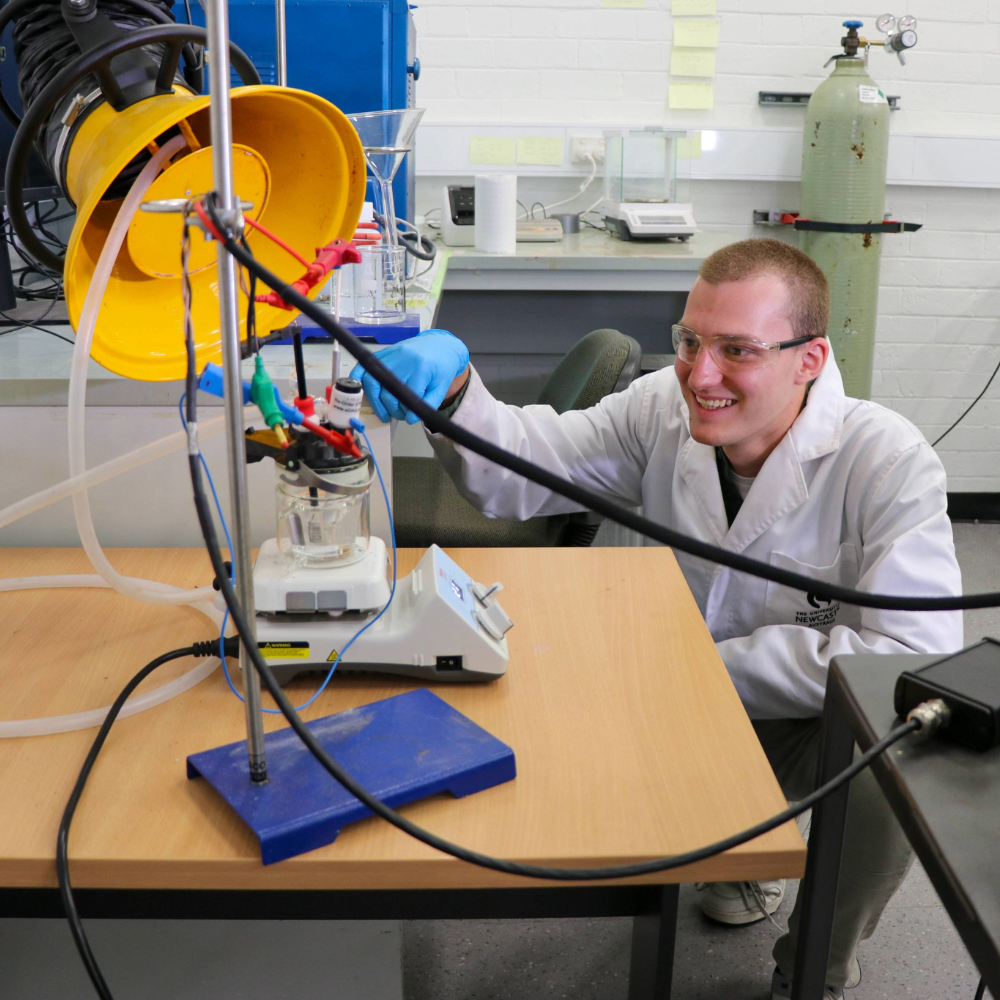
Advanced electrochemical treatment of recycled silicon for upgraded applications
Read more
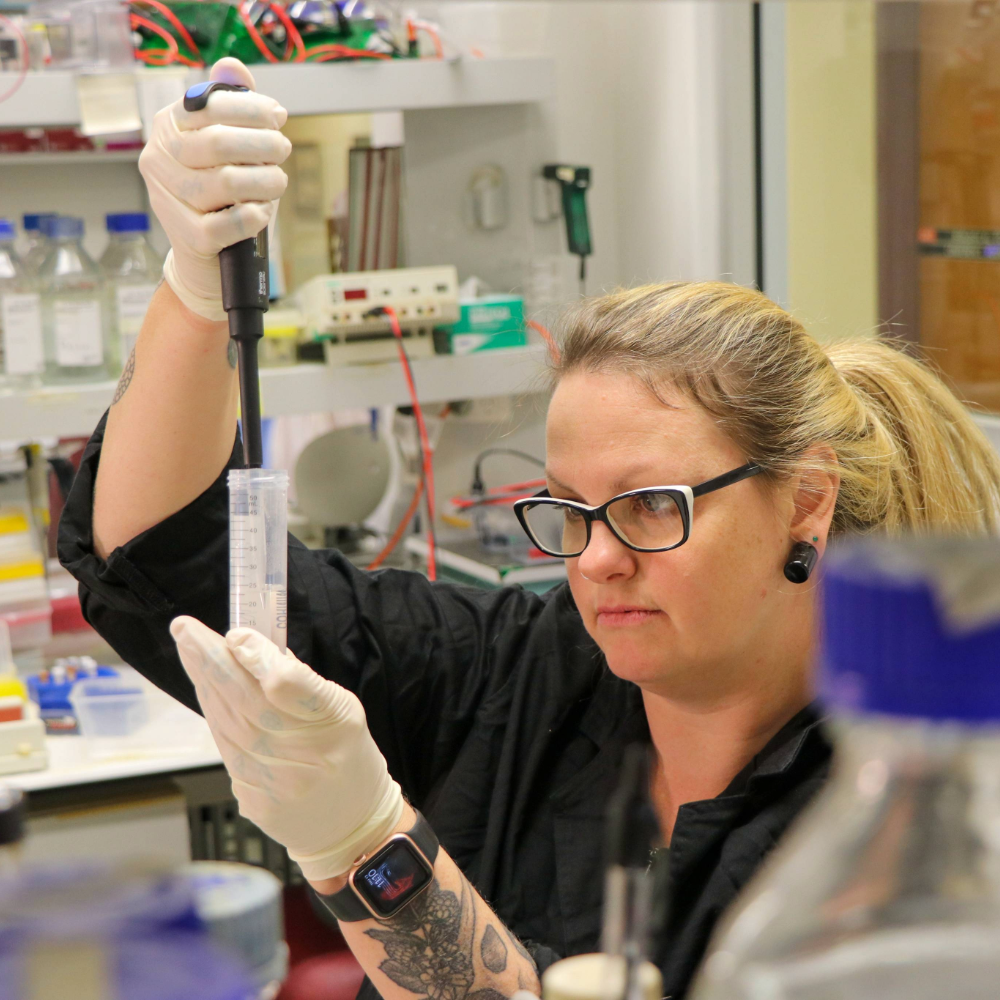
Engineering yeast strains for enhanced cellulosic bioethanol production and high-value chemical synthesis
Read more
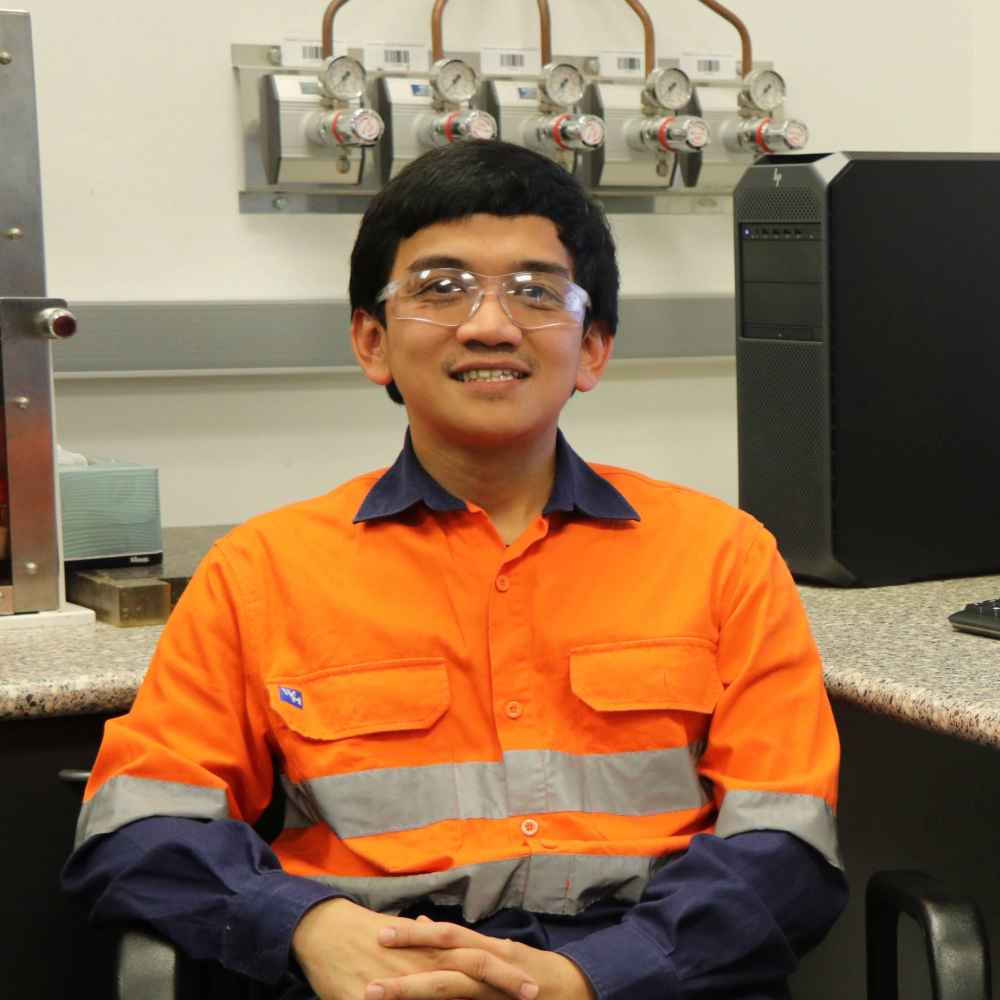
Iron ore sinter quality for blast furnace ironmaking under hydrogen operation
Read more
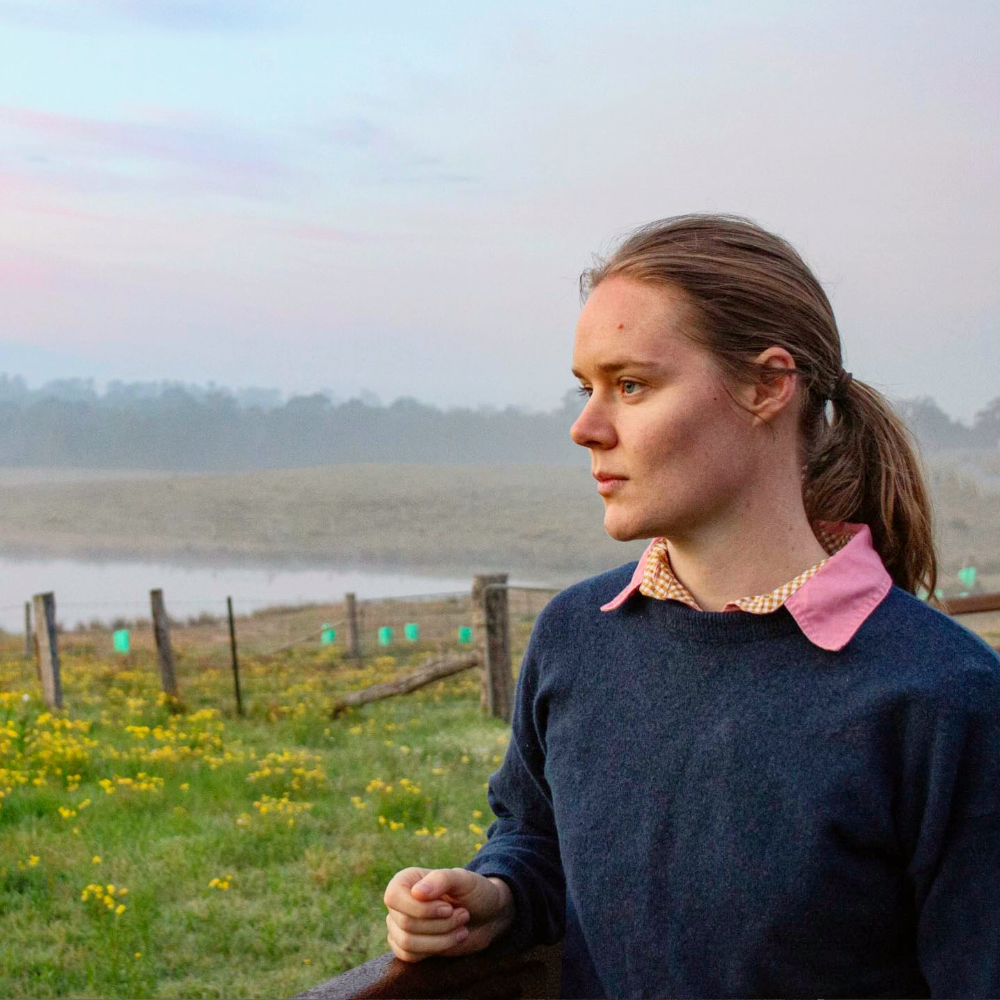
Legacy, stewardship and place attachment: Elder land and landscape protection at the mine frontier
Read more
The University of Newcastle acknowledges the traditional custodians of the lands within our footprint areas: Awabakal, Darkinjung, Biripai, Worimi, Wonnarua, and Eora Nations. We also pay respect to the wisdom of our Elders past and present.